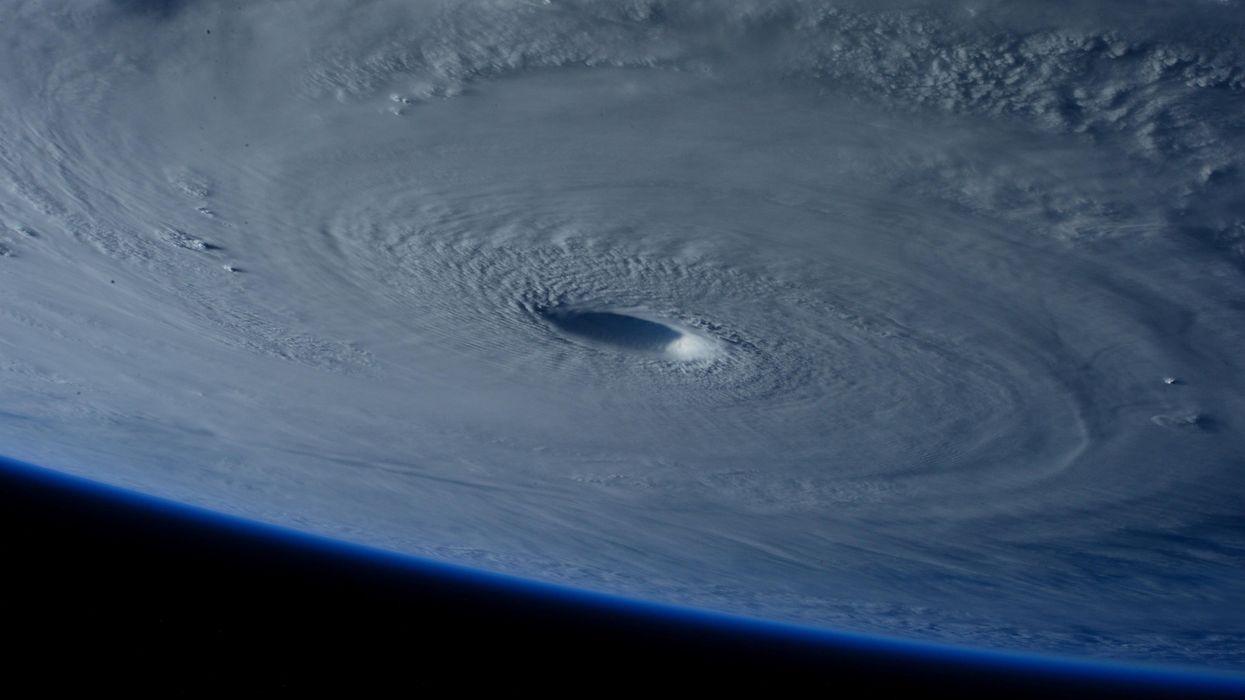This Weather Phenomenon Is 'Defying All Odds' & Could Cause Canada To Be Hit By More Hurricanes
The 2022 Atlantic hurricane season is already expected to be above average.

Hurricane seen from space.
A weather phenomenon is "defying all odds" and that could mean more hurricanes in Canada during the 2022 Atlantic hurricane season.
According to The Weather Network, the current La Niña pattern was expected to dissipate by the summer but the global weather pattern is showing no signs of slowing down.
Since the hurricane season is already expected to be above average, La Niña continuing could have "major implications" for the frequency and strength of storms.
A forecast from Colorado State University that was released in April called for "above-normal activity," with 19 named storms (average is 14), nine hurricanes (average is seven) and four major hurricanes (average is three).
While that forecast said La Niña conditions looked likely to transition to a neutral pattern in the summer and fall, another organization has since put out a different prediction.
The National Oceanic and Atmospheric Administration released an advisory that La Niña is "favored to continue" through the summer with a 50-55% chance through the fall as well.
According to The Weather Network, La Niña has two key factors that tend to lead to more hurricane activity; warmer waters in the Atlantic Ocean, which is "hurricane fuel," and weaker trade winds (winds that blow east to west around the equator), which allow hurricanes to develop more easily.
"This increases the likelihood that Canada may be impacted by these major storms more frequently than previously thought," The Weather Network said.
In recent years, Atlantic Canada has been impacted by quite a few intense storms, including Hurricane Sam, Hurricane Larry, Hurricane Teddy and Hurricane Dorian, which have caused extreme weather conditions and damage.
- Hurricane Larry Hit Newfoundland Hard Overnight & Caused So ... ›
- Ontario's Weather Is About To Get Stormy & Temperatures Are Going To Drop 'Considerably' - Narcity ›
- Canada's Weather Forecast Is Calling For Snow In 6 Provinces This Week So Keep Your Boots Out - Narcity ›
- Hurricane Season Is Expected To Be Above Average This Year & Here's What It Means For Canada - Narcity ›
- Canada's Weather Is About To Get Chaotic With Alerts For Tornados, Severe Thunderstorms & Heat - Narcity ›